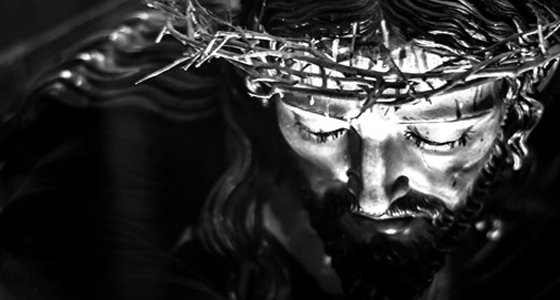Advent Apologetics: What is the “Word of God”?
The term word of God refers to God’s divine revelation to humanity, in which he reveals himself to us for the sake of our salvation. The Vatican II document Dei Verbum (DV) explains:
Through divine revelation, God chose to show forth and communicate himself and the eternal decisions of his will regarding the salvation of men. That is to say, he chose to share with them those divine treasures which totally transcend the understanding of the human mind (6).
Christians generally agree that the fullness of God’s revelation is the Son of God, Jesus Christ. St. John begins his Gospel writing about the “Word” in this sense:
In the beginning was the Word, and the Word was with God, and the Word was God. He was in the beginning with God; all things were made through him, and without him was not anything made that was made. In him was life, and the life was the light of men. The light shines in the darkness, and the darkness has not overcome it (John 1:1-5).
Word of God is used in this same sense elsewhere in the New Testament,1 but we also find a secondary sense of the term: to refer to the spoken and written revelation of God upon which Christian teaching is based, and which is passed on from generation to generation. For example, in the book of Acts, Luke writes about “preaching the word of God” (6:2) and how it “increased” (6:7) as well as “grew and multiplied” (12:24). In Acts 13, the word of God is “proclaimed” (5), “spoken” (46), and people came to “hear” it (7, 44). In Acts 18, St. Paul is depicted “teaching” the word of God (11).
It is this secondary sense of the term that Christians most often have in mind when we refer to the revelation of God that has been entrusted to the Church and taught down through history. It contains the truths that Christians must believe and make active in our lives for the sake of our salvation and the salvation of others. St. Jude calls it “the faith which was once for all delivered to the saints” (Jude 3).
Jesus entrusted this deposit of faith to the apostles and their successors, guided by the Holy Spirit, to be safeguarded from corruption and taught in every age just as Jesus commissioned them to do before his Ascension (see Matt 28:19-20).
Dei Verbum elaborates:
In his gracious goodness, God has seen to it that what he had revealed for the salvation of all nations would abide perpetually in its full integrity and be handed on to all generations. Therefore Christ the Lord in whom the full revelation of the supreme God is brought to completion (see Cor. 1:20; 3:13; 4:6), commissioned the apostles to preach to all men that gospel which is the source of all saving truth and moral teaching, and to impart to them heavenly gifts. This gospel had been promised in former times through the prophets, and Christ himself had fulfilled it and promulgated it with his lips (7).
It is important to recognize that the apostles carried out their commission both through preaching and writing. The Catechism of the Catholic Church (CCC) explains:
In keeping with the Lord’s command, the gospel was handed on in two ways:
orally by the apostles who handed on, by the spoken word of their preaching, by the example they gave, by the institutions they established, what they themselves had received—whether from the lips of Christ, from his way of life and his works, or whether they had learned it at the prompting of the Holy Spirit;
in writing by those apostles and other men associated with the apostles who, under the inspiration of the same Holy Spirit, committed the message of salvation to writing (76).
In the Catholic Church, we refer to the apostles’ preaching, examples, and institutions as Sacred Tradition (or apostolic tradition) and their writing (including the Old Testament that they received from the Jews) as Sacred Scripture. Many other Christians believe that only the written Bible is the word of God. They see Scripture alone as the only definitive source of divine truth. Catholics, however, believe that God did not limit his revelation to a book; instead he gave his saving truth to mankind in two complementary and equally authoritative forms.
There exists a close connection and communication between Sacred Tradition and Sacred Scripture. For both of them, flowing from the same divine wellspring, in a certain way merge into a unity and tend toward the same end… [I]t is not from Sacred Scripture alone that the Church draws her certainty about everything which has been revealed. Therefore both Sacred Tradition and Sacred Scripture are to be accepted and venerated with the same sense of loyalty and reverence (DV 9).
Thus, the Catholic Church bases its teaching upon one source: the word of God, transmitted to his people in two ways.- From 20 Answers: Scripture & Tradition
Recent Posts
-
What's Right, and What's Wrong—Salvation Hangs In the Balance
The Catholic Church teaches us what actions are gravely sinful and must be avoided so we do not for …Feb 17th 2026 -
Hasty Generalizations and True Scotsmen
No True Scotsman is a type of logical fallacy that involves making exceptions when a claim is contr …Feb 16th 2026 -
Saved By Faith Alone?
The Protestant Reformation was launched when a Catholic priest named Martin Luther thought he’d dis …Feb 10th 2026










